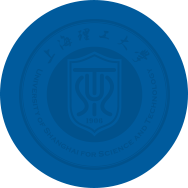Academic Leader
Li Haolin, born in February 1961, is a Ph.D. holder and professor, doctoral supervisor of Engineering as well as a member of China Democratic League. He received Ph.D. from Xi'an Jiaotong University in March 1990. He is now the Vice Chairman of Shanghai Mechanical Engineering Society, Vice Director of Manufacturing Automation System Control Committee of China Automation Society, Director of Manufacturing Technology and Equipment Committee of Shanghai Mechanical Engineering Society, Director of Machinery Industry Key Laboratory of Precision Grinding Technology, member of the Teaching Guiding Committee of Mechanical Design, Manufacturing and Automation under Ministry of Education.
He has presided over a number of technology development projects sponsored by enterprise as well as many major and special research projects sponsored by local, national and international programs, including Shanghai “Shuguang” project, Key Technology Project of Shanghai Science and Technology Commission, Key Youth Teacher Fund Project of the National Education Commission, Key Research Project of Shanghai Education Commission, Key Fund Project of Shanghai Science and Technology Commission, the International Cooperation Project of Shanghai Science and Technology Commission, the Major Fund Project of Shanghai Science and Technology Commission, the International Cooperation Project of the Ministry of Science and Technology and the Major National Science and Technology Special Projects.
Technologies he developed, such as CNC Grinding Machine Drive Chain Error Measurement and Analysis System CNC Gear Forming Grinding Control System CNC Cylindrical Grinder Control System and CNC Grinding Wheel Wear Online Measurement and Error Compensation have been put to production.
He has received numerous research awards, including the second prize in scientific progress of the MOE in 1990, the third prize of China Machinery Industry Science and Technology Award in 2005, the second prize of China Machinery Industry Science and Technology Award, the first prize of Shanghai Science and Technology Progress Prize by virtue of “Large Heavy Duty Precision Shaft Parts Grinding Technology and Series Complete Equipment” in 2011, the first prize of China Machinery Industry Science and Technology Progress Prize by virtue of “Key Technology and Equipment Development of High-grade CNC Grinding Machine for Steel Automobile Industry”, the third prize of China Machinery Industry Science and Technology Prize by virtue of “Industrialization Application of the Key Technology of Intelligent Traction Elevator” in 2016, and the third prize of Shanghai Science and Technology Progress Prize by virtue of “Application of the Key Technology of High-speed and Heavy-Duty Traction Elevator” .
Team Members
The discipline boasts around 30 professors (including 14 doctoral supervisors).
Research of the team
1) CNC equipment design and manufacturing technology
Taking advantages of the key mechanical industry laboratory of precision grinding technology, the key machinery industry laboratory of CNC machine tool optimization technology, the key machinery industry laboratory for strength and reliability evaluation of chassis parts, Shanghai CNC Equipment Engineering Technology Research Center, and Shanghai CNC machine tool optimization technology service platform, the research team of numerical control equipment design and manufacturing technology conducts cooperation with leading enterprises in the domestic CNC machine tool industry, undertaking in-depth research based on dynamic characteristics in CNC machine tool optimization design technology, CNC machine tool quality consistency control technology and CNC machine tool dynamic performance evaluation technology. The team has undertaken more than 30 national and provincial-level major and key research projects, including eight national “Advanced CNC Machine Tools and Basic Manufacturing Equipment” technology research work, and has obtained over ten patents. These technologies are of great significance in promoting the technological development of China’s machine tool industry, and have produced enormous economic and social benefits.
2) Intelligent design technology for advanced electromechanical equipment
In view of the low efficiency of the current structural topology optimization method, the team proposed a new adaptive bionic topology optimization design theory based on the adaptive growth mechanism of natural biological morphology. The research results are applied to optimize the rib reinforcement, the truss and the three-dimensional solid structure of plate and shell structure, and the optimized design of the heat dissipation channel distribution. At the same time, with the comprehensive application of structural topology optimization, shape optimization and size optimization design technology, multi-disciplinary comprehensive optimization design and application research is carried on in the fields of machine tools and auto parts. In recent years, the team has undertaken enterprise sponsored technology research projects as well as more than 20 national and provincial-level major and key projects including the National Natural Science Foundation (NSFC) and National Science and Technology Major Projects.
3) Additive manufacturing
The research team was established by introducing the Monash University’s Additive Manufacturing Research Center, led by Professor Wu Xinhua and Professor Yu Aibing of Monash University, fellows of Australian Academy of Technology, Science and Engineering. The core members consist of Rod Boyer, James C. Williams, fellows of Australian Academy of Technology, Science and Engineering, Professor Huang Aijun, Professor Sossina M. Haile, Professor G. Jeffrey Snyder, Professor Shao Zongping, Professor Zhang Bozeng, Professor Li Mei, Dr. Mei Junfa, Dr. Zhang Kun, Dr. Cao Yu, Dr. Zou Yichao and other internationally renowned scholars. The team aims to build the International Additive Manufacturing Laboratory of University of Shanghai for Science and Technology into a leading international platform for innovative research and application of technology, in the fields of special material development and fabrication technology for additive manufacturing, additive manufacturing processes, and equipment for aerospace, medical, and new energy devices, surface treatment and functionalization technologies, performance evaluation and defect analysis techniques.
4) Advanced material fabrication and processing
The team initially focuses on high-performance copper alloy material and its processing technology, and has accumulated a profound research foundation in this field. The lead-frame materials of copper alloy with high-strength and high-conductivity, developed independently by the team have satisfied the needs of large-scale and ultra-large-scale integrated circuits, which significantly improved the comprehensive technical level of the lead-frame materials of copper alloy for integrated circuits in China, making great contributions in demonstrating and promoting the industrial structure transformation of China’s copper processing industry, and having yielded huge economic and social benefits. The Cu-Cr-Zr alloy, developed by the team, has been widely used as lining materials for rocket engine, for continuous casting crystallizer in large-scale steel enterprises. And the Cu- Mg alloy the team developed has been used to fabricate the contact line material for high-speed railway and rail transportation. The team has established a long-term cooperation with Luoyang Copper Co., Ltd. of Aluminum Corporation of China (CHALCO), Ningbo Kangqiang Electronics Co., Ltd., Wuhan Iron and Steel (Group) Company, Capital Space Machinery Corporation, and Kang Yuan New Material Co., Ltd. of China Railway Construction Group.
Based on copper alloy materials, the team extends its research on functional alloy nanomaterial and fabrication technology to explore the application of new alloy nanomaterial in the energy sector, including metal-air battery cheap alloy anodes and fabrication, silicon alloy high capacity lithium battery cathode materials and fabrication, nickel-based nanoalloy catalytic materials and their fabrication. The team has recently discovered a high-performance, low-cost silicon-iron alloy for metal-air battery anode fuels, making great contribution to the development of metal-air batteries. In addition, it has also made outstanding achievements in research and developing such high-capacity accessory materials as silicon-tin, silicon-copper alloys for alloy-typed lithium batteries. Some of the research findings have been commercialized by means of the cooperation with enterprises.
5) Intelligent materials and devices
Aiming at the needs from the sectors of high-end equipment, energy, environment, and other industries for smart materials and devices, the team focuses its research on multi-scale and multi-dimensional control of carbon nanomaterial (graphene, carbon nanotubes, carbon quantum dots, etc.), and micro-nanometer semiconductor materials, as well as their physical and chemical modification and compounding. The research team expects to apply the results of new material research to energy conversion equipment, high-efficiency energy storage equipment, advanced thermal management systems, environmental monitoring and treatment, etc., promoting the development of new materials, new processes and large-scale low-cost equipment. After years of hard work, the team has been renowned for its featured research in carbon-based smart materials and devices in China, and is gradually expanding its international influence. The research covered include micro- manufacturing of low-dimensional functional materials, low-dimensional smart materials and micro electro mechanical system (MEMS), environmental response and repair materials, as well as advanced energy materials and devices.
Contact: 021-55270456

